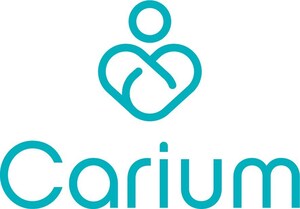PETALUMA, Calif., April 7, 2022 /PRNewswire/ -- This week, the White House Office of Science and Technology Policy (OSTP) invited Carium, a trailblazer in the virtual care technology space, to join nine other start-ups in providing input on the vision for the Community Connected Health Initiative.
The Community Connected Health initiative is a new vision for health delivery that combines digital health technologies and community-based approaches to care. This collaboration seeks answers to lowering barriers to healthcare access and providing healthier lives for all Americans, especially those currently underserved.
"It was an excellent discussion about real problems and real solutions," stated Mike Hatfield, chairman and co-founder at Carium. "Emerging technologies, such as Carium, are playing a meaningful role in enabling health equity through a modernized approach to healthcare delivery."
The nine start-ups chosen are part of the MassChallenge PandemicX cohort — a partnership between MassChallenge and the U.S. Department of Health and Human Services (HHS).
The pandemic exposed wide disparities in our healthcare system and the substantial effort required to address long-standing barriers to health equity. As noted in a recent report from McKinsey Health Institute, key focus areas to improving health for all should:
- Increase investment in preventative health
- Improve understanding of health with better data
- Scale what works equitably across the country
- Empower individuals to steward their own health
The listening session, hosted by the Assistant Director for Community Connected Health at OSTP, Jackie Ward, demonstrated the collaboration between the federal government and the innovation community. Two policy focus areas Hatfield discussed during the session were:
Limitations on coverage and reimbursement of virtual care services are some of the biggest barriers to access.
The FCC COVID-19 Telehealth Program and HRSA grants helped defray the cost of implementing telehealth services and began to bridge the digital divide in healthcare. This level of financial support will have a lasting positive impact. As a result, Carium recommends further investment to continue to evaluate and expand the impact of digital health in underserved communities.
The uptick in telehealth use during the pandemic, and the data supporting improved outcomes and accessibility, demonstrates the value and need for permanent federal virtual care policies that support reimbursement.
The increase of digital health technology signals a promising trend in helping address barriers to access. However, many of these tools rely on access to high-speed broadband, smartphones, and digital health literacy. To successfully integrate digital health into community healthcare, patients must have easy access and a basic understanding of how to use technology to avoid creating additional barriers to equitable care.
Honored for this opportunity to provide feedback to the OSTP on strengthening community health through technology, Carium looks forward to future, continued collaborations with the federal government, healthcare systems, and practices as they work together to identify opportunities and solutions to address these difficult challenges.
Learn more about how we're extending patient care beyond the practice walls in equitable ways.
Carium's advanced, virtual care platform empowers patients and their caregivers while providing their trusted clinicians with real-time, aggregated health data and analytics that can scale to multiple clinical programs. An easy, intelligent and comprehensive digital solution, Carium informs, connects and personalizes patient care. Visit us to learn more at carium.com and follow us on LinkedIn or Twitter.
Contact: Ashley Dauwer
401-744-6353
[email protected]
SOURCE Carium





Share this article